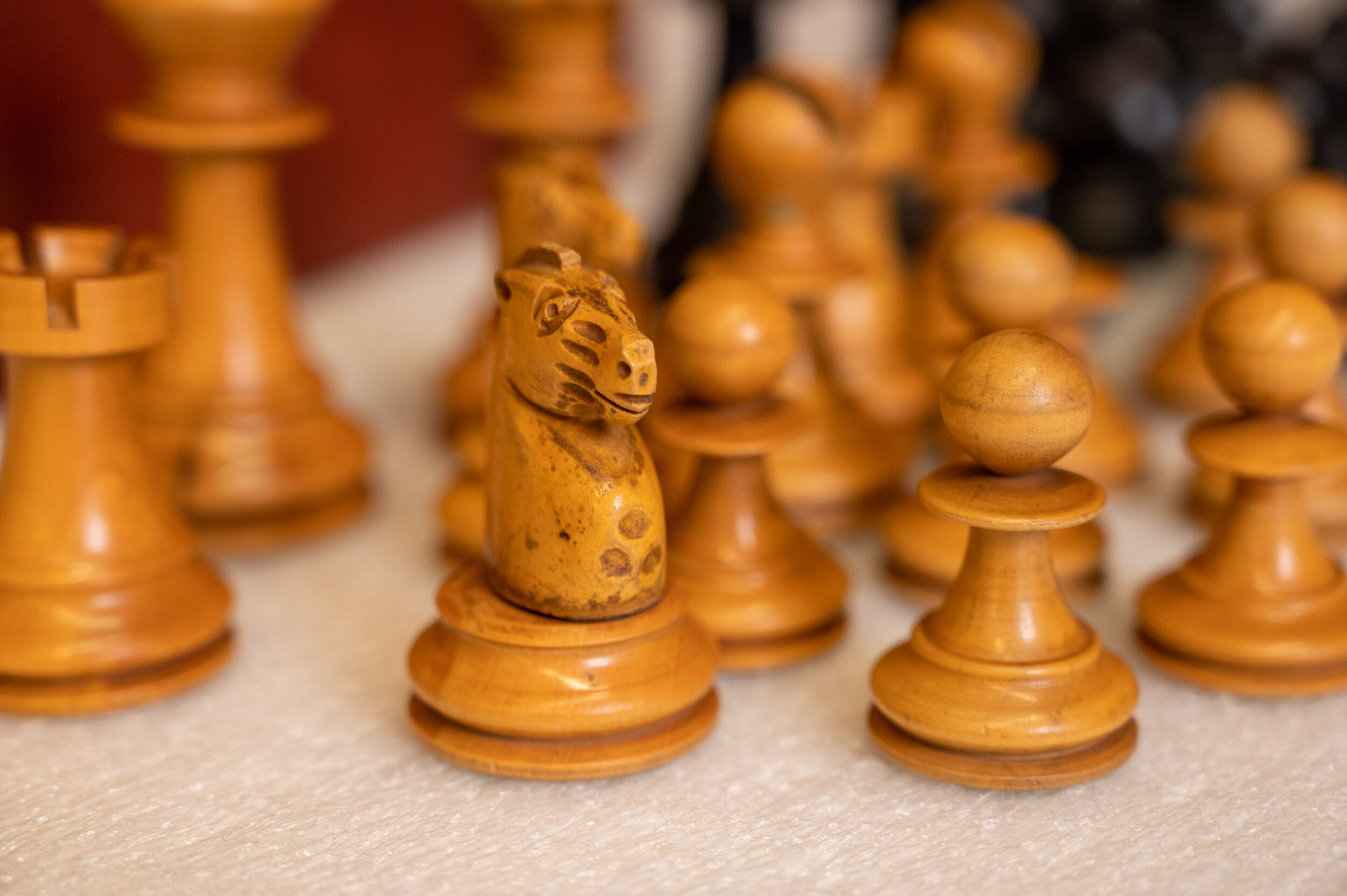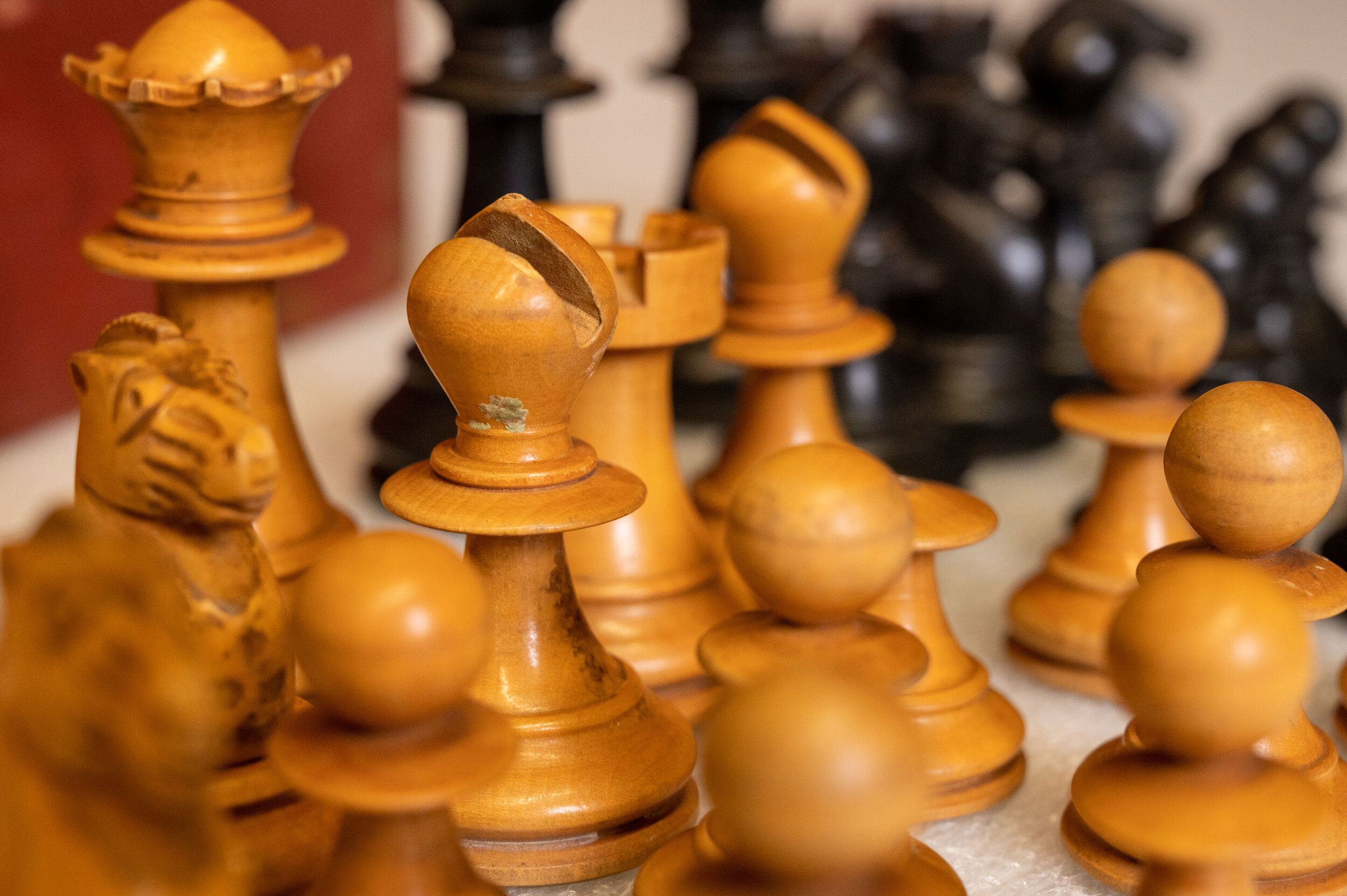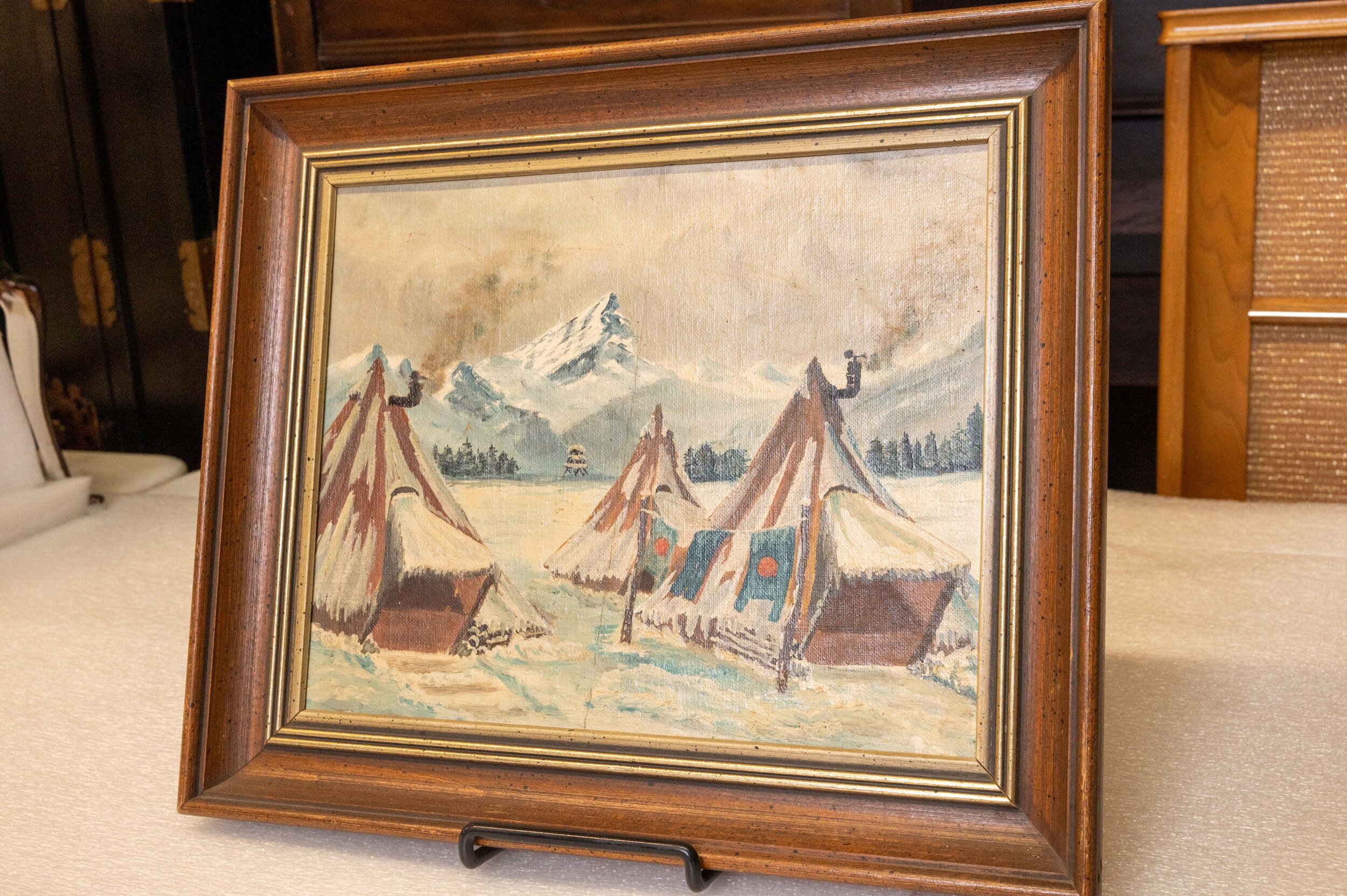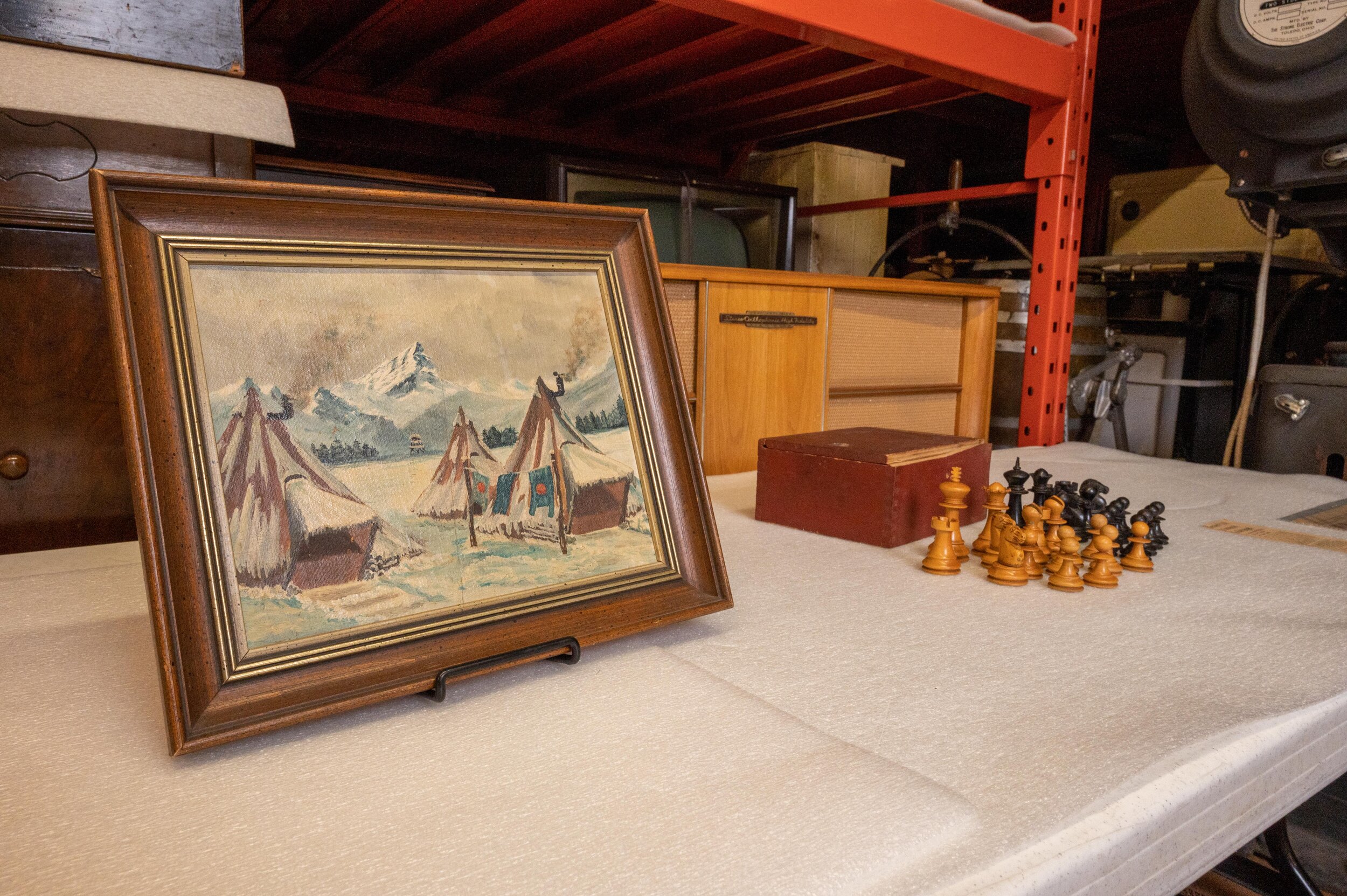Willi Mueller's Chess Set and Painting
The Galt Museum & Archives is full of special and unique objects that have strong connections to people, places and events in southwestern Alberta. The institution has been digitally releasing stories about some of those objects to online audiences. The most recent of the objects to be featured are a chess set and painting that belonged to Willi Mueller, a German prisoner of war. These objects are of national historic importance.
Mueller was involved in one of the few murders that took place in a Canadian prisoner of war camp during the Second World War. He was found guilty and sentenced to be hanged with three other prisoners of war. He was held at the Medicine Hat RCMP detachment while he was on trial and awaiting execution. The detachment was commanded by Sergeant Denzel Ashby. At the time, his detachment housed the Ashby family as well as prisoners. The Ashbys and Mueller developed a close relationship in those months. Donor Wendy Russell, Denzel Ashby’s younger daughter, recalled:
“[Mueller] became very close to our family and used to cut the grass. I can remember... I would sit on the stairs and listen to him play his harmonica... I get all teary when I think... But he was a very, very pleasant young man... Seeing pictures of him now, I can recall his nice countenance. He had a very friendly face and very relaxed, very, very personable, very reliable, very respectful.”
When Mueller was sent to be executed at the Lethbridge jail, he gifted the chess set and painting to Sergeant Ashby.
The story these objects tell is unique and deeply personal. Russell explained that her father likely believed that Willi should not have been executed. “I have a feeling he thought at the time that Willi should never have been hanged. And I think that that weighed on him.”
Donor Hilary White added that her mother Rosemary, Russell’s older sister and a teenager at the time, had strong feelings for Mueller. White remembers her mother telling her “that [Willi] died on her birthday. And it was devastating. And she still cried about it… She must have been very emotionally attached to him.”
The chess set and painting are objects of national significance because of their connection to the prisoner of war camps in southern Alberta, their connection to the second largest execution in Canadian history, and the strong family connections and memories that were recorded with these objects when they were offered to the Galt.
You can learn more about these objects at the links below:
Chess Set, 20160007002, https://collections.galtmuseum.com/en/permalink/artifact13162
Painting, 20160007001, https://collections.galtmuseum.com/en/permalink/artifact13161
The Galt is grateful to the subject-matter experts delivering online content. As local professionals and knowledge experts, these presenters add valuable contributions to the local discourse; however, their ideas are their own. The people featured in the videos and those behind the scenes followed best practices to protect their health and safety.




